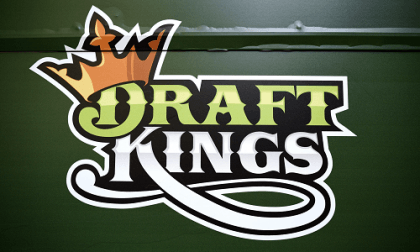If Sports Betting is Legalized in New Jersey, DraftKings Wants In
Real-money daily fantasy sports (DFS) is gambling. Yes, there is most certainly a fairly sizable element of skill involved, but there is tons of skill involved in poker, too, and that’s gambling. The daily fantasy sites haven’t wanted to admit they are gambling sites – mainly for legal reasons, I would assume – but now, as a ruling by the U.S. Supreme Court on sports betting draws near, DFS industry leader DraftKings has said it has been looking to make the full turn into full-fledged sports betting.
 Most readers of this site are probably familiar with the Supreme Court sports betting case, but for those who aren’t, I’ll try to make it quick. In 1992, the Professional and Amateur Sports Protection Act (PASPA) was passed, making sports betting illegal across the United States. States that had casino gambling for the previous ten years were given the option to opt-in to sports wagering, but only Nevada, Oregon, Delaware, and Montana did (Nevada is the only one that has traditional, odds-based wagering). Realizing its mistake in recent years, New Jersey has tried to launch a sports betting industry, even having a referendum passed by voters, but the major professional sports leagues and the NCAA sue the state every time something gets going. New Jersey decided enough was enough and launched its own suit, basically saying that PASPA was a bullshit violation of states’ rights. The U.S. Supreme Court eventually took up the case last year and now everyone is waiting on a decision.
Most readers of this site are probably familiar with the Supreme Court sports betting case, but for those who aren’t, I’ll try to make it quick. In 1992, the Professional and Amateur Sports Protection Act (PASPA) was passed, making sports betting illegal across the United States. States that had casino gambling for the previous ten years were given the option to opt-in to sports wagering, but only Nevada, Oregon, Delaware, and Montana did (Nevada is the only one that has traditional, odds-based wagering). Realizing its mistake in recent years, New Jersey has tried to launch a sports betting industry, even having a referendum passed by voters, but the major professional sports leagues and the NCAA sue the state every time something gets going. New Jersey decided enough was enough and launched its own suit, basically saying that PASPA was a bullshit violation of states’ rights. The U.S. Supreme Court eventually took up the case last year and now everyone is waiting on a decision.
Industry insiders and those who attending the court sessions feel that the Supreme Court will rule in favor of New Jersey, opening the path for either federal legalization of sports betting or legalization and regulation on a state-by-state basis.
Which brings us to DraftKings. Daily fantasy sports is ostensibly gambling, but because it falls into its own gray area-type category (and probably because fantasy sports, in general, are much more accepted and mainstream and sports betting), DFS sites were able to build huge customer bases around the country with little resistance. Once they did meet resistance from state lawmakers and Attorneys General, they were often able to work out new laws to either make DFS explicitly legal or to exempt the games from gambling laws.
But now that the PASPA ruling sounds like it will work out in New Jersey’s favor, DraftKings is looking at taking the opportunity – if it does arise – to expand from pseudo-gambling into tried-and-true sports betting. It’s a natural progression. Last week, the company posted a short statement on its website, saying that it has been in talks with possible partners in the Garden State:
DraftKings, with the world’s most popular daily fantasy sports platform and nearly 10 million sports-mad customers, is perfectly positioned to succeed in a legal sports betting market. In preparation for the possibility of sports wagering in New Jersey, DraftKings has naturally had discussions with potential land-based casino partners, as required under the state’s online gaming regulations. We do not have any announcements at this time, and our focus continues to be on creating great sports entertainment experiences for the millions of customers who currently use DraftKings.
This isn’t technically new news, as DraftKings has hinted at moving into sports betting since last fall. At the Web Summit in Portugal in November, DraftKings CEO Jason Robins said his company would look into it if sports betting was legalized. Then, in February, the company hired Sean Hurley to be the “Head of Sportsbook.”
In a statement, DraftKings said that Hurley “….will focus on preparing Sportsbook as a potential new line of business for DraftKings in anticipation of the pending Supreme Court decision in Christie v. National Collegiate Athletic Association.”
That DraftKings would talk to “land-based casino partners” in New Jersey makes sense. If and when sports betting is legalized, it is quite likely that New Jersey will allow currently licensed casinos to be the ones to apply for sports betting licenses. Of course, if a casino already has some sort of sports betting experience or capability (see: Borgata or Golden Nugget), it wouldn’t need to make a deal with DraftKings unless it coveted the millions of customers in the site’s database. After all, one would think that people who play daily fantasy sports would tend to be willing or even eager to throw down some bets on a football game. Similarly, if a casino has an online gambling site, it already has a database of customers. DraftKings may have to prove to someone that its customers are more valuable and perhaps that its brand (if the partnership were to go that route) could attract people, as well.



















COMMENTS